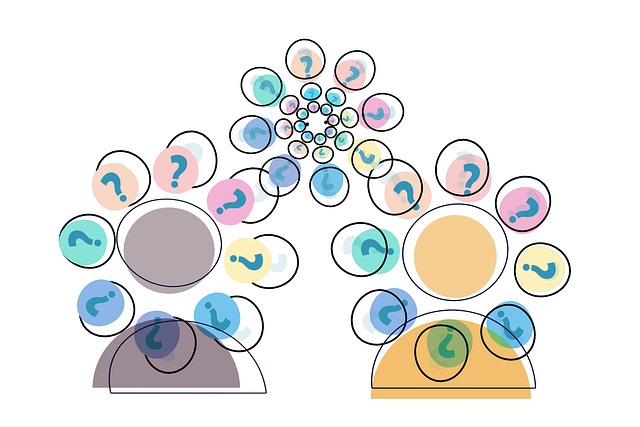Securing Divorce: Private Negotiations, Protected Information

Confidential divorce mediation offers a private, collaborative approach to secure negotiations for s…….
In today’s complex social landscape, divorce has become a more prevalent aspect of modern life, affecting individuals across diverse socio-economic backgrounds. As families evolve and societal norms shift, the process of legal separation demands innovative approaches to meet the emotional and psychological needs of those involved. Confidential divorce mediation emerges as a powerful tool, offering a collaborative and discreet alternative to traditional litigation. This article delves into the intricacies of confidential divorce mediation, exploring its definition, global impact, economic implications, technological integration, regulatory framework, challenges, successful case studies, and future prospects. By the end of this comprehensive guide, readers will gain valuable insights into this transformative practice and its profound effects on families and communities worldwide.
Confidential divorce mediation is a structured process where a neutral third party, known as a mediator, facilitates communication and negotiations between divorcing couples. Unlike litigation, which often involves confrontational strategies, mediation emphasizes collaboration, cooperation, and mutual agreement. The core components of this process include:
The concept of mediation has deep historical roots, dating back to ancient civilizations where elders or community leaders would facilitate peace talks. However, its formal application in family law, particularly divorce cases, gained prominence in the late 20th century. The 1970s and 1980s saw a significant shift towards alternative dispute resolution methods, with mediation emerging as a popular choice due to its cost-effectiveness, efficiency, and focus on preservation of relationships. Over time, confidential divorce mediation has evolved to incorporate new techniques, technologies, and cultural sensitivities, making it a highly effective approach for modern families.
Confidential divorce mediation plays a crucial role in several aspects:
Confidential divorce mediation has gained global recognition and adoption, with various countries implementing their own variations to suit cultural and legal norms. The international community has acknowledged its benefits, leading to its inclusion in international forums and publications. For instance, the United Nations’ Convention on the Rights of the Child emphasizes the importance of parental cooperation in child-related matters, aligning closely with mediation principles.
Different regions showcase unique trends in the adoption and practice of confidential divorce mediation:
| Region | Trends | Influencing Factors |
|---|---|---|
| North America | High acceptance and integration into legal systems, particularly in the U.S., with specialized mediator training programs. | Strong emphasis on alternative dispute resolution and family law reforms. |
| Europe | Widespread use across various countries, with notable success stories in the UK and Germany. | Diverse cultural approaches, with some nations embracing mediation as a first-line defense in divorce proceedings. |
| Asia | Growing popularity, especially in Japan and South Korea, where traditional values encourage harmony and cooperation. | Cultural sensitivity and the desire to minimize public disclosure of private matters. |
| Middle East | Increasing awareness, with some countries mandating mediation as an alternative to court. | Religious and cultural influences that promote reconciliation and family preservation. |
The global reach of confidential divorce mediation has profound implications for diverse communities:
The confidential divorce mediation market has experienced steady growth, driven by increasing acceptance of alternative dispute resolution methods:
Investors in this sector focus on several critical areas:
Confidential divorce mediation has a profound influence on economic systems:
Technology has revolutionized confidential divorce mediation, improving accessibility, communication, and efficiency:
The integration of technology in mediation holds immense potential:
The practice of confidential divorce mediation is shaped by various policies and regulations that vary across jurisdictions:
Regulatory frameworks play a pivotal role in the evolution and growth of mediation:
Despite its numerous advantages, confidential divorce mediation faces several challenges:
To address these challenges, several strategies can be implemented:
The following case studies highlight the successful implementation of confidential divorce mediation:
Case Study 1: Japan’s Harmony Mediation Program
Case Study 2: Germany’s Family Mediation Act
Case Study 3: U.S. Online Mediation Platforms
The future of confidential divorce mediation holds great promise across several domains:
Several emerging trends shape the future of mediation:
To capitalize on these trends and ensure sustainable growth:
Confidential divorce mediation stands as a beacon of hope for families navigating the complexities of separation. Its global impact, economic benefits, technological advancements, and regulatory support underscore its importance in modern society. By addressing challenges, learning from case studies, and embracing emerging trends, the field can continue to evolve and thrive. As the world embraces alternative dispute resolution methods, confidential divorce mediation will undoubtedly play a pivotal role in shaping more harmonious and efficient family law practices worldwide.
Q: What is the difference between confidential divorce mediation and traditional litigation?
A: Traditional litigation involves adversarial proceedings where one party opposes another, often resulting in lengthy court battles. In contrast, confidential mediation fosters collaboration, allowing couples to negotiate their own agreements with the help of a neutral third party. Mediation maintains confidentiality, reduces conflict, and promotes mutually agreeable outcomes.
Q: Is mediation suitable for every divorce case?
A: While mediation is highly effective for many cases, it may not be appropriate for situations involving domestic violence, child abuse, or complex asset division. In such cases, litigation might be a better option to ensure safety and fairness. However, even in these scenarios, some aspects of mediation, like co-parenting planning, can still be beneficial.
Q: How do I choose the right mediator for my divorce?
A: Selecting a mediator requires careful consideration. Look for trained professionals with experience in family law. Check their credentials, references, and the types of cases they specialize in. Ensure they maintain confidentiality and have a proven track record of successful resolutions.
Q: Can mediation save me money compared to going to court?
A: Absolutely! Mediation is generally more cost-effective than litigation as it avoids legal fees associated with court proceedings. The process can be completed faster, reducing the overall financial burden. However, costs may vary based on the complexity of the case and the number of sessions required.
Q: Is mediation confidential, and how is that protected?
A: Yes, mediation is designed to be highly confidential. Everything discussed during sessions remains strictly private. Mediators are bound by ethical codes and legal obligations to maintain confidentiality. They will also ensure all written communications and agreements are secure and protected.

Confidential divorce mediation offers a private, collaborative approach to secure negotiations for s…….

Private divorce mediation offers a confidential alternative to public litigation, prioritizing secre…….

Private divorce mediation offers a confidential, collaborative approach to resolving divorce dispute…….

Discreet family mediation offers a private, structured approach to divorce, empowering couples to co…….

Confidential divorce mediation prioritizes privacy to foster secure communication between couples se…….

Confidentiality is essential in discreet family mediation, protecting sensitive information shared b…….

Confidentiality in divorce mediation ensures privacy for couples seeking sensitive help. It protects…….

Confidentiality in divorce mediation ensures a private space for couples to discuss sensitive matter…….

Confidentiality is paramount in privacy-focused divorce help through mediation, ensuring sensitive f…….

Private divorce mediation prioritises confidentiality, protecting sensitive personal and financial d…….